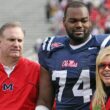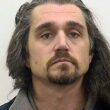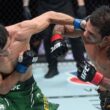To get to Donald Trump, special counsel Jack Smith went straight through the ex-president’s lawyers.
The prosecutor who has secured two indictments against the former president is testing the legal profession in new ways with the cases.
In one, where Mr. Smith accused Mr. Trump of intentionally withholding and maltreating secret documents that should have been turned back over to the government, the prosecutor used the former president’s private communications with his lawyer as evidence.
The other case, which accuses the president of fueling the 2020 election chaos, argues the president was enabled by shady legal practices. Mr. Trump ignored the White House lawyers who told him there wasn’t significant fraud, instead choosing to listen to other lawyers who suggested ways to challenge, and perhaps overturn, President Biden’s victory.
Jonathan Turley, a professor at George Washington University Law School, said the lawyers, and Mr. Smith’s use of them in making his case, could create some legal headwinds for the prosecutor.
“Smith has always been known as a highly aggressive prosecutor who can exceed his legal boundaries or underlying criminal provisions. The use of Trump’s counsel against him only adds another controversial element to the prosecution,” Mr. Turley said.
Mr. Smith’s office declined to comment on this story.
In the documents case, a federal judge ruled that Mr. Smith could compel the testimony of Evan Corcoran, a Trump lawyer, piercing the usually sacrosanct attorney-client privilege that allows someone to shield legal communications with their lawyer.
Mr. Smith cited the crime-fraud exception, which says a lawyer can’t be involved in assisting the commission of a crime. Judge Beryll A. Howell, an Obama appointee, ruled that Mr. Corcoran had to testify to the grand jury that brought the charges.
The resulting indictment referred to a “Trump Attorney 1” who hasn’t been charged with any crime but is being used as a witness. The indictment says Mr. Trump suggested hiding the documents and had an aide move some boxes of documents so they wouldn’t be found by Mr. Corcoran when he searched for classified materials pursuant to a subpoena.
After the search, Mr. Corcoran said Mr. Trump was pressed to find out what the lawyer found, wondering if there was anything “bad.” He then made a “plucking motion,” suggesting that if there were bad documents the lawyer should “pluck it out,” Mr. Corcoran recalled — though he said Mr. Trump never actually voiced that.
The second case on the events surrounding the 2020 election mentions four of Mr. Trump’s lawyers as unindicted co-conspirators. Among them are believed to be Rudolph W. Giuliani, John Eastman and Sidney Powell.
Both Mr. Giuliani and Ms. Powell launched legal challenges in swing states over the handling of mail-in ballots and alleged voting machine irregularities. Mr. Eastman counseled Mr. Trump on Vice President Mike Pence’s alleged ability to block Congress from certifying the election results.
Mr. Smith, in his four-count indictment on the post-election activities, says Mr. Trump was told by Mr. Pence, the Justice Department, Homeland Security’s cybersecurity agency, state officials and White House lawyers that there was no “outcome-determinative election fraud.”
But with the aid of his team of lawyers, he pursued challenges nonetheless.
Mr. Eastman, Ms. Powell and Mr. Giuliani all faced disciplinary complaints and reviews by state bars over their post-election activities.
None of them responded to inquiries from The Washington Times, nor did Mr. Corcoran.
Ty Clevenger, a lawyer who polices legal ethics, said Mr. Smith’s case seeks to penalize Mr. Trump for believing one set of lawyers over another. He called the prosecution “a war on the right to counsel.”
“It has the potential to turn the legal profession inside out because the targets are the ‘wrong politics,’” said Mr. Clevenger. “It is banana republic stuff. They are targeting lawyers based on who the client is or based on the ideology of the lawyer.”
Peter A. Joy, a law professor at Washington University in St. Louis, said lawyers can’t give bad legal advice without fear of consequences. He said they rightly face ethics complaints if they don’t give clients the best professional judgment.
“Lawyers are supposed to exercise independent professional judgment and are ethically required to give clients the straight news not just the news clients want,” he said. “The sad fact is that there are some lawyers who disregard this ethical duty. When they do, they subject themselves to professional discipline, as Rudy Giuliani and John Eastman have learned.”
Mr. Joy also doubted that the indictments would chill clients’ ability to speak openly with their lawyers.
“I don’t think the case is going to have any real impact on what clients tell their lawyers. Most clients receiving legal assistance are not engaged in or contemplating committing crimes,” Mr. Joy said.
But Mr. Clevenger said lawyers may be wary of taking cases.
He said he knows one defense lawyer who declined to help represent Jan. 6 defendants due to concerns about becoming a target of the FBI or IRS.
Source:Washington Times





